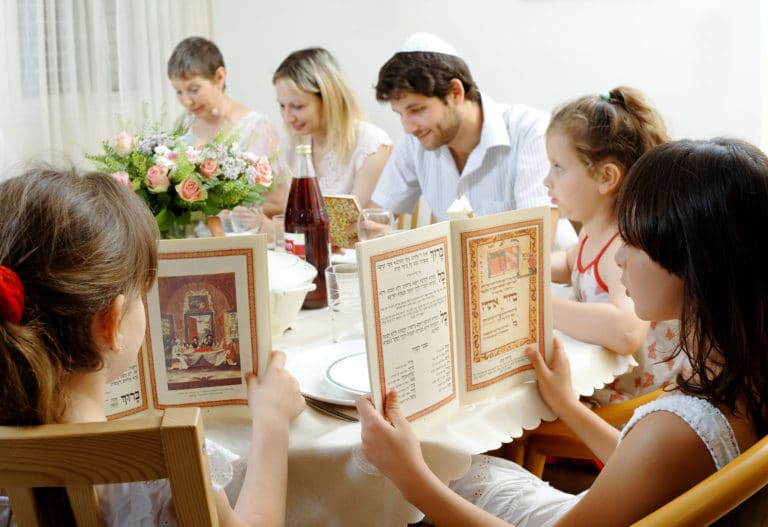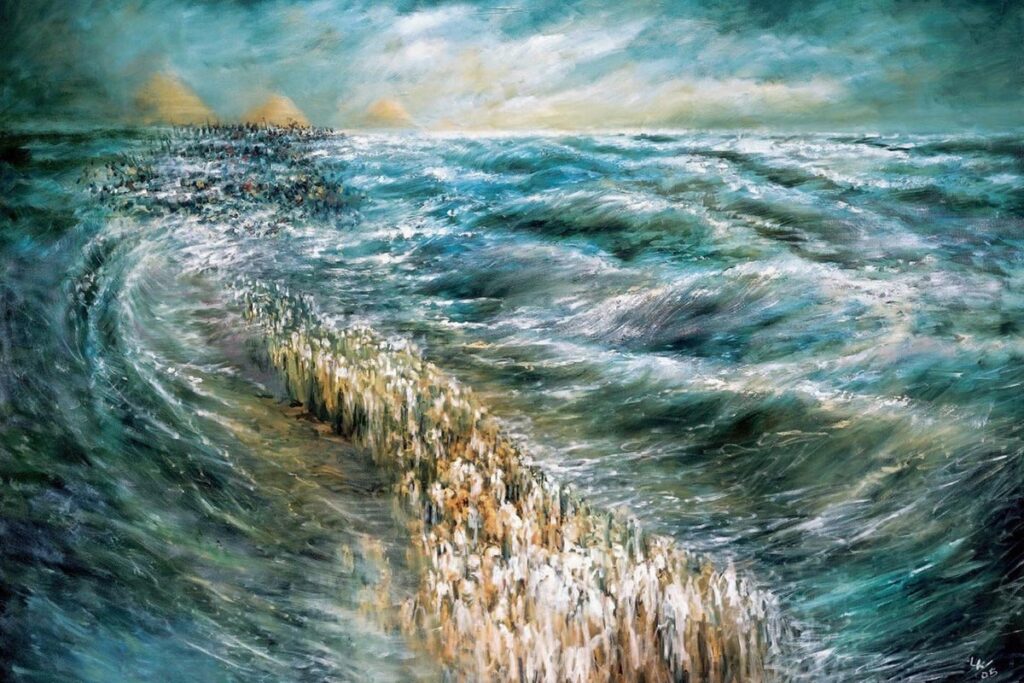
The Haggadah is one of the most well-known Jewish texts. It majestically guides our seder experience and is the source of many of our Passover “greatest hits” — from the Four Questions of the “Mah Nishtanah” (“Why is this night different?”) to “Dayeinu,” from eating matzah to finding the afikoman.
And yet, it’s wildly perplexing. When you pull the zoom lens back and look at the text as a whole, you begin to notice a few challenges. First, for a text that is supposed to tell the story of the Exodus, it takes a long, long time to get there. And, the preamble can feel pretty disjointed and hard to follow.
We ask four questions; convey how others retold the story; learn laws about how to retell it; delve into four different types of children and how they each ask about the story; talk about antisemitism throughout our history generally; and discuss ancestral idolatry and Abraham’s covenant with God — all before we even begin discussing the Exodus itself.
But the second challenge may be even more bizarre. When we finally do get to the story of the Exodus, we — and you’ll excuse my irreverence — don’t do a great job at telling it.
If I were to ask you for an appropriate text through which to tell the story, I imagine you’d say: “The Biblical verses of the Exodus story itself! It’s a perfect candidate.” But, instead, we choose to retell it through the lens of a farmer, many years after the Exodus.
Here’s the background: Each year, farmers would dedicate their first fruits of the season to God, and they accompanied that with a declaration. Here’s the gist of it: “Years ago,” says the farmer, “we were slaves in Egypt. God saved us and brought us to this Land of Israel. Now that I’m in Israel, I can bring You these fruits.” On Pesach night, we choose to retell the Exodus story using the verses of this declaration.
While the declaration is beautiful, why should it ever become the source of how we retell the Exodus story on seder night? If we’re sitting at a Shabbat table and we want to hear a juicy story, from whom do we want to hear it? (I’m asking for a friend, of course.)
From the source, the one who is in the story, the one who experienced it! I don’t want to hear a random second-hand version that someone heard from someone else. So, why not quote the firsthand Exodus story instead of calling upon the farmer’s editorialized account?
I have a radical suggestion (one developed from my own exploration and from the fascinating insights of my teacher, Rabbi David Fohrman): We’re reading the Haggadah wrong. The goal of the Haggadah — and, for that matter, of Pesach — is not to retell the Exodus story. That’s certainly a big part of it, but it’s only a conduit, a means toward an end.
The goal is to see ourselves, today, as beneficiaries of God’s love. To see ourselves as direct beneficiaries of the Exodus of millennia ago. And to express ongoing gratitude.
The very first time that we, as a nation, experienced God was during the Exodus. Our relationship began with our salvation — when God understood our pain, released us from our subjugation, struck our oppressors, showered us with sustenance and love throughout our journey, and began to heal us.

We retell that story not just to marvel over past miracles, but because those miracles are the reason we’re here today. As we say at the seder, “And if God had not taken our ancestors from Egypt, we and our children and our children’s children would [all still] be enslaved to Pharaoh in Egypt.”
Even more, God’s love that we saw so explicitly during the Exodus continues — albeit in less overt forms — today. The Haggadah is supposed to remind us of that, too. In other words, in retelling the miracle of the Exodus from Egypt, we also recognize the hand of God in our lives throughout the year.
So, yes — we’re meant to study the Exodus, but toward the end of recognizing our spot in that gorgeous tapestry. It’s precisely why we conclude the retelling by emphatically declaring, “In each and every generation, a person is obligated to see oneself as if he/she left Egypt.”
I’d suggest that the Haggadah is not asking to pretend that we ourselves left Egypt; that sounds like a theologically-meaningless children’s game of make-believe. Instead, it means precisely what we’ve been saying: We must see ourselves as direct beneficiaries of the Exodus.
If all this is true, then even more important than the details of the story itself is how we retell it. And, if so, the Haggadah’s “preamble” before we get to the Exodus itself is hardly introductory — it’s exactly the point. We explore how others engaged the story — how others saw themselves in the experience — in order to help us consider how we might do that ourselves.
We talk about how God has saved us from antisemitism and oppression throughout history — not just our slavery in Egypt — because the goal of the seder is to see God’s love continue in every generation through today.
That’s why, when we discuss the Exodus story itself, we choose to retell it through the eyes of the farmer, someone who clearly and explicitly sees how he is a beneficiary of the Exodus, who sees his story as part of our national history. On seder night, the farmer is our teacher. The farmer reminds us that the Exodus wasn’t a cool moment in our history; it was emblematic of our relationship with God that continues today.
As the Ramban (Nachmanides) writes (Exodus/Shemot 13:16), sometimes it takes the grandiose miracles of an Exodus to train us to see God even in the small things in our lives. Those are manifestations of that same love that catalyzed the miracles of the Exodus. Recognizing that is the goal of seder night.
So, all of that is lovely — but how can we accomplish it? Here are a few suggestions that can help make our Pesach 2023 a bit more meaningful:
- Prepare for the seder! This sort of deep reflection doesn’t just happen on its own.
- Words of Torah and seder “shtick” are important, but don’t get lost in the details. When you prepare for the seder, focus less on the intricate details of the Haggadah’s text and more on how you’re going to internalize it, how you’re going to see yourself in the story.
- In addition to a nice d’var Torah, prepare a few interactive reflection questions to pose to others (and yourself!) at your seder. Have a discussion (and after a glass of wine or two, we’re perfectly primed for some authenticity). Here are a few suggestions, but make them your own!
- Where would you be if the Exodus didn’t happen?
- How did the Exodus begin to shape the relationship between the Jewish people and God? How has the experience molded our nation?
- Now that we experienced the Exodus, what responsibilities does it put upon us — as individuals and as a nation — today, millennia later?
- Where do we see God’s hand in our own lives, in 2023? When is it really challenging to feel it? Where might we find tiny personal microcosms of the Exodus in our day-to-day?
- Before the holiday ends, ask yourself: How am I going to take Pesach with me into the rest of the year?
May we all have a Passover filled not only with historical memory but with personal reflection, meaning, and gratitude. It’s the ultimate freedom.
Originally Published Apr 4, 2023 01:45PM EDT
